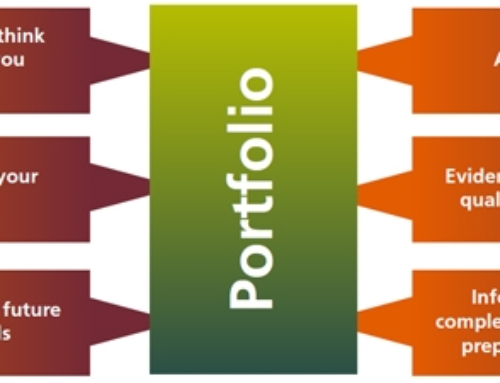- Strong Work Ethic. …
- Positive Attitude. …
- Good Communication Skills. …
- Time Management Abilities. …
- Problem-Solving Skills. …
- Acting as a Team Player. …
- Self-Confidence. …
- Ability to Accept and Learn From Criticism.
- Leadership Skills.
- Flexibility/Adaptability. …
- Interpersonal Skills
Skills such as listening, collaborating with others, presenting ideas and communicating with team members are all highly valued in the modern workplace. Strong soft skills ensure a productive, collaborative and healthy work environment, all vital attributes for organisations in an increasingly competitive world.
- Make eye contact and acknowledge everyone’s presence in the room.
- Be aware of your body language.
- Practice both formal and conversational speaking.
- Develop your writing skills and ALWAYS proofread before hitting the “send” button.
- Proficiency in a foreign language.
- A degree or certificate.
- Typing speed.
- Machine operation.
- Computer programming.
How to Use Skills Lists
You can use the skill words listed below as you search for jobs. For example, include the terms in your resume, especially in the description of your work history. You can also incorporate them into your cover letter. Mention one or two of the skills mentioned here, and give specific examples of instances when you demonstrated these traits at work.
You can also use these words in your interview. Keep the top skills listed here in mind during your interview, and be prepared to give examples of how you’ve exemplified each.
Top Soft Skills
Communication Skills
Communication skills are important in almost every job. You will likely need to communicate with people, whether they are clients, customers, colleagues, employers, or vendors. You will need to be able to clearly and politely speak with people in person, over the phone, and in writing. You will also likely need to be a good listener. Employers want employees who can not only communicate their own ideas, but also listen empathetically to others.
- Able to listen
- Listening
- Negotiation
- Nonverbal communication
- Persuasion
- Presentation
- Public speaking
- Read body language
- Storytelling
- Verbal communication
- Visual communication
- Writing reports and proposals
- Writing skills
Critical Thinking
No matter what the job, employers want candidates who can analyze a situation and make an informed decision. Whether you are working with data, teaching students, or fixing a home heating system, you need to be able to understand problems, think critically, and come up with solutions. Skills related to critical thinking include creativity, flexibility, and curiosity.
- Adaptable
- Artistic sense
- Creativity
- Critical observer
- Critical thinking
- Design sense
- Desire to learn
- Flexible
- Innovator
- Logical thinking
- Problem solving
- Research
- Resourceful
- Think outside the box
- Tolerant of change and uncertainty
- Troubleshooting
- Value education
- Willing to learn
Leadership
While not every job opening is a leadership role, most employers will want to know that you have the ability to make decisions when push comes to shove, and manage situations and people. If it is a job that has the potential for advancement, the employer will want to know that you have what it takes to become a leader in the future.
Other skills related to leadership include the ability to resolve problems and conflicts between people, and to make executive decisions.
- Conflict management
- Conflict resolution
- Deal making
- Decision making
- Delegation
- Dispute resolution
- Facilitating
- Give clear feedback
- Inspiring
- Leadership
- Management
- Managing difficult conversations
- Managing remote teams
- Managing virtual teams
- Meeting management
- Mentoring
- Motivating
- Project management
- Resolving issues
- Successful coach
- Supervising
- Talent management
Positive Attitude
Employers are always looking for someone who will bring a positive attitude to the office. They want employees who will be friendly to others, eager to work, and generally a pleasure to be around.
- Confident
- Cooperative
- Courteous
- Energetic
- Enthusiastic
- Friendly
- High energy
- Honest
- Patient
- Respectable
- Respectful
- Sense of humour
- Work-life balance
Teamwork
Hiring managers look for job candidates who can work well with others. Whether you will be doing a lot of team projects, or simply attending a few department meetings, you need to be able to work effectively with the people around you. You need to be able to work with others even if you do not always see eye to eye.
Some skills related to teamwork include the ability to negotiate with others, and to recognize and appreciate diversity and difference in a team. Another related skill is the ability to accept and apply feedback from others.
- Accept feedback
- Collaborative
- Customer service
- Deal with difficult situations
- Deal with office politics
- Disability awareness
- Diversity awareness
- Emotional intelligence
- Empathetic
- Establish interpersonal relationships
- Experience dealing with difficult personalities
- Intercultural competence
- Interpersonal skills
- Influential
- Networking
- Persuasive
- Self-awareness
- Selling skills
- Social skills
- Team building
- Team player
Work Ethic
Employers want job candidates with a strong work ethic. People with a strong work ethic complete tasks on time, stay focused, and stay organized. They are able to budget their time and complete their work thoroughly. While they can work independently, people with a strong work ethic can also follow instructions.
- Attentive
- Business ethics
- Competitive
- Dedicated
- Dependable
- Follow direction
- Highly organized
- Independent
- Make deadlines
- Motivated
- Multitasking
- Organization
- Perseverant
- Persistent
- Planning
- Proper business etiquette
- Punctual
- Reliable
- Resilient
- Results oriented
- Self-directed
- Self-monitoring
- Self-supervising
- Strategic planning
- Time management
- Work well under pressure





